Technology environment that accelerates sharing and professional development for mathematics teachers The case of RAMZOR
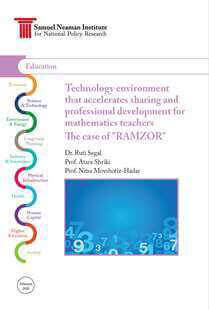
The multi-phase Study described in this paper is a part of an R&D project aimed at examining the development and the implementation of a digital environment named RAMZOR for constituting opportunities for professional collaboration among mathematics teachers and supporting their efforts to plan and realize their complex daily tasks. The results of the study indicate […]
Technological forecasting for scientific and technological human resources 2019
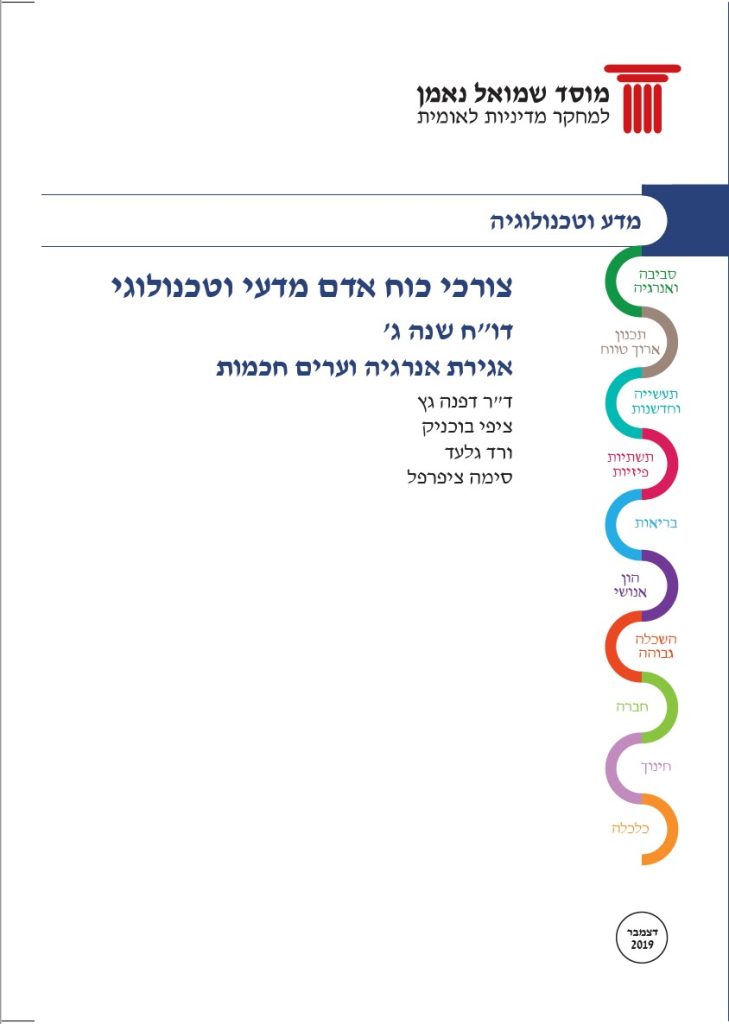
This study was conducted as part of a four-year tender for the National Council for Research and Development in the Ministry of Science and Technology. The objective of this study is to execute forecasts of the needs of scientific and technological personnel for selected fields / professions for the short term (10 years). The past two decades […]
Technological forecasting for scientific and technological human resources
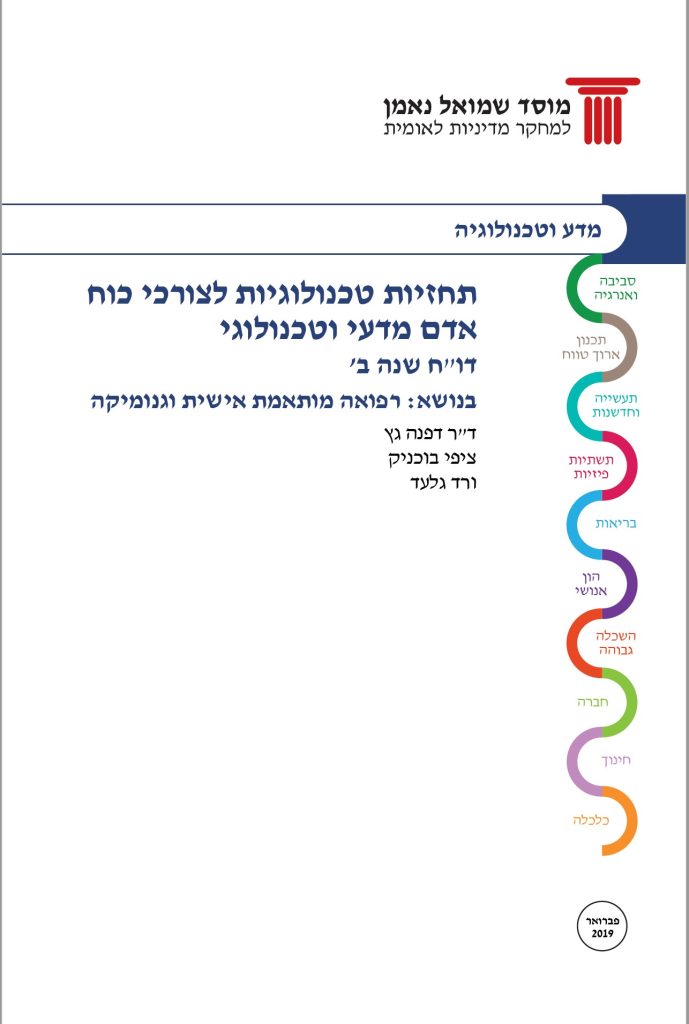
This study was conducted as part of a four-year tender for the National Council for Research and Development in the Ministry of Science and Technology. The objective of this study is to execute forecasts of the needs of scientific and technological personnel for selected fields / professions (for example: chemistry, robotics, nanotechnology, cyber protection) for […]
Technological forecasting for scientific and technological human resources
The past two decades have been characterized by accelerated growth of new technologies in the fields of robotics, communications and information systems, nanotechnology, biotechnology, energy and more. Technologies that affect all areas of the economy (health, education, industry, agriculture, trade, etc.) and dictate new work patterns, new professions while others disappear and appropriate training and […]
Data Analytics approaches and tools survey for promoting advanced manufacturing
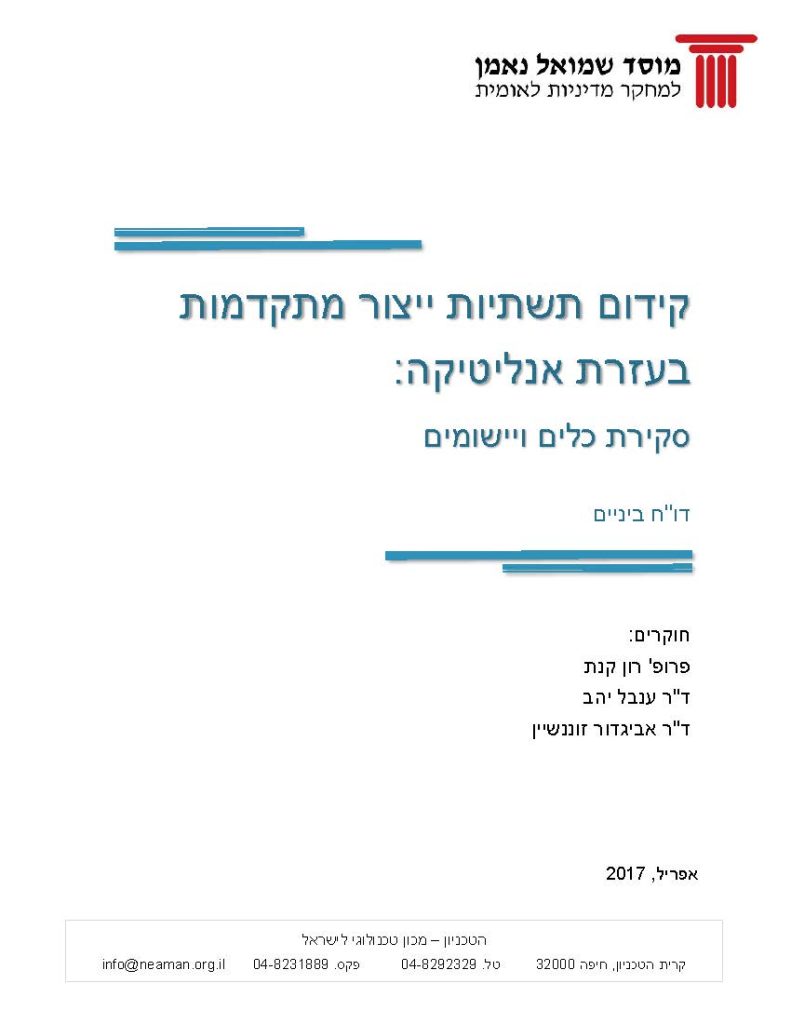
The aim of this document is to present a variety of approaches and tools of data analytics for promoting and supporting advanced manufacturing in industry.
Is there a Shortage of Academic Degree Holders in Science and Technology?
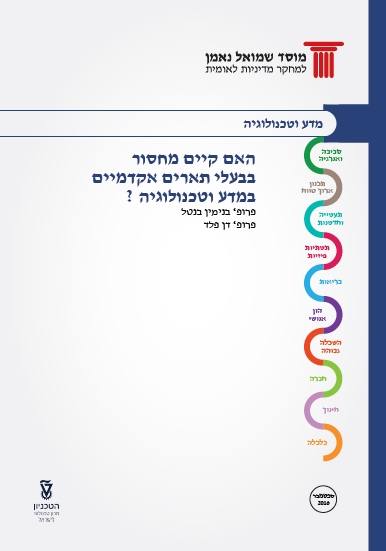
This research extends previous work by the authors, “The Role of Research Universities in the Israeli R&D System”, by investigating the possible shortage of graduates with academic degrees in S&T. Contrary to common views, we conclude that there currently is no overall shortage in the number of S&T degree recipients. Some 10,000 receive a first […]
How to bring Haredim to science and technology?
This report delineates the factors which may reinforce the integration of Haredi (Ultra-Orthodox) individuals in science and technology occupations in Israel. In the background there is, first, a growing deficiency of scientific-technological manpower in Israel’s industry (especially high-tech industry), in R&D centers and in academic research institutes; on the other hand, there is obviously a […]
High school high-level Physics in the last 4 decades 1975-2014 in Israel: Changes and implications
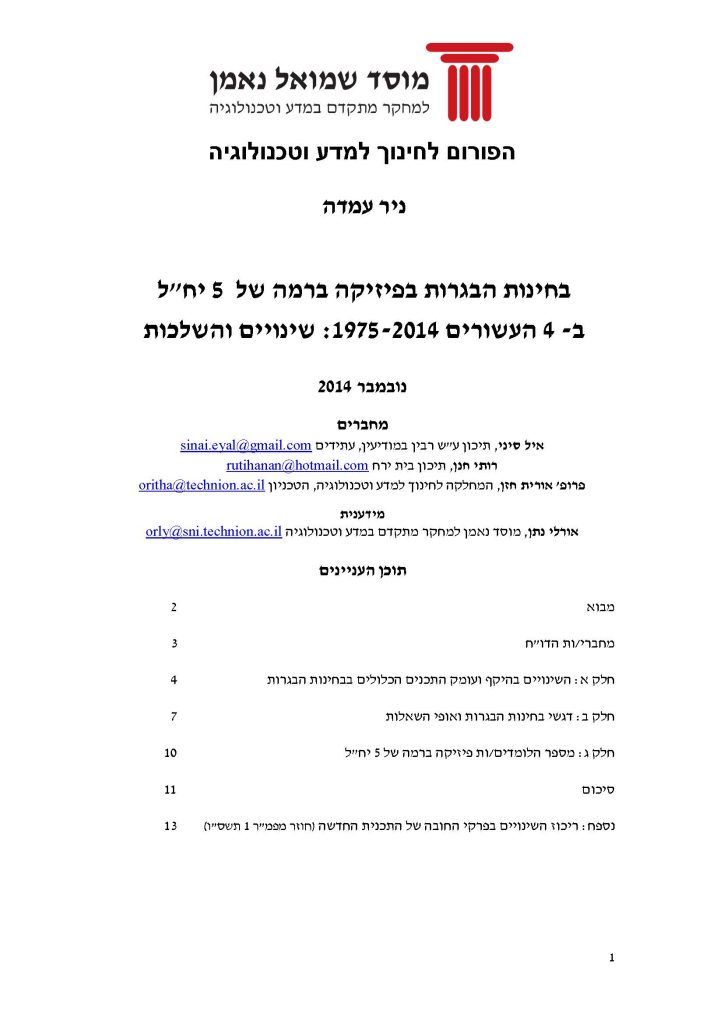
This position paper presents and analyzes the changes that took place in high-level Physics matriculation exams during the last 40 years: 1975-2014. Section A reviews the changes in the scope and depth of the material included in the matriculation exam. Section B analyzes the changes in the contents on which the matriculation exam focuses and […]
Science & Technology Education in Israel: Selected Indicators for the Development of a Risk Management Strategy regarding Possible Future Shortages of S&T Teachers in Upper-Secondary Schools
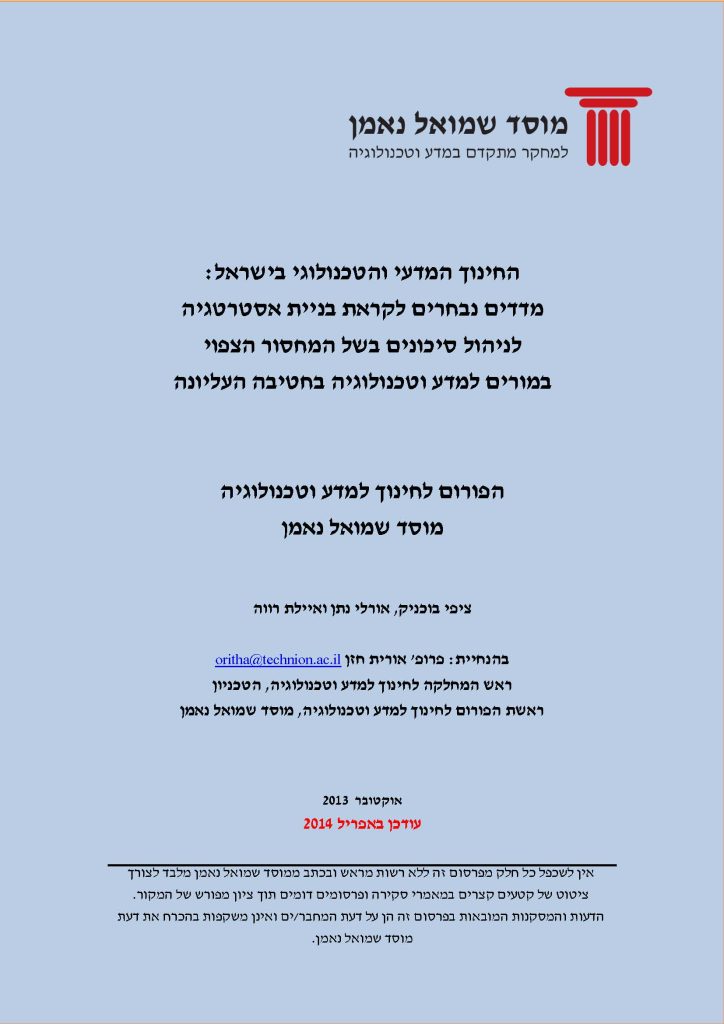
The Forum for Science and Technology Education has been launched in 2013 in order to establish and encourage cooperation among different sectors in Israel to promote K-12 science, technology, engineering and mathematics (STEM) education. The importance attributed to STEM education and the need to increase the number of high-school students who choose to study STEM […]
Predictions for human resources in science and technology :Models and Indicators
This work was commissioned by the subcommittee, Academia-Industry Relations of the National Council for Civilian R&D (Molmop). One of the goals of this committee is a re-examination of the suitability of the training provided by higher education institutions for the needs of the future economy. There is an agreement among policy makers and academics that […]
